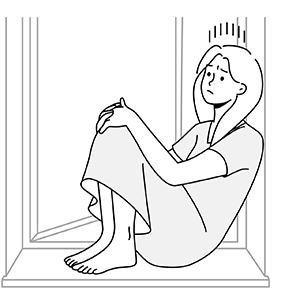A cross-sectional study to determine the psychological distress among pulmonary tuberculosis patients during COVID-19 pandemic

Submitted: March 2, 2022
Accepted: May 6, 2022
Published: May 13, 2022
Accepted: May 6, 2022
Abstract Views: 1855
PDF: 344
Publisher's note
All claims expressed in this article are solely those of the authors and do not necessarily represent those of their affiliated organizations, or those of the publisher, the editors and the reviewers. Any product that may be evaluated in this article or claim that may be made by its manufacturer is not guaranteed or endorsed by the publisher.
All claims expressed in this article are solely those of the authors and do not necessarily represent those of their affiliated organizations, or those of the publisher, the editors and the reviewers. Any product that may be evaluated in this article or claim that may be made by its manufacturer is not guaranteed or endorsed by the publisher.
Similar Articles
- Abhishekl Agarwal, Sakshi Batra, Rajendra Prasad, Anand Verma, Abdul Q. Jilani, Surya Kant, A study on the prevalence of depression and the severity of depression in patients of chronic obstructive pulmonary disease in a semi-urban Indian population , Monaldi Archives for Chest Disease: Vol. 88 No. 1 (2018)
- Massimiliano Polastri, Lara Pisani, Andrea Dell'Amore, Stefano Nava, Revolving door respiratory patients: A rehabilitative perspective , Monaldi Archives for Chest Disease: Vol. 87 No. 3 (2017)
- Paolo Ruggeri, Federica Lo Bello, Francesco Nucera, Michele Gaeta, Francesco Monaco, Gaetano Caramori, Giuseppe Girbino, Hereditary hyperhomocysteinemia associated with nephrotic syndrome complicated by artery thrombosis and chronic thromboembolic pulmonary hypertension: A case report , Monaldi Archives for Chest Disease: Vol. 87 No. 3 (2017)
- Rosa Spezzaferri, Maddalena Modica, Vittorio Racca, Vittorino Ripamonti, Monica Tavanelli, Gabriella Brambilla, Maurizio Ferratini, Psychological disorders after coronary artery by-pass surgery: a one-year prospective study , Monaldi Archives for Chest Disease: Vol. 72 No. 4 (2009): Cardiac series
- Abhijeet Singh, Rajendra Prasad, Rajiv Garg, Surya Kant, Giridhar B. Hosmane, Abhisek Dubey, Abhisek Agarwal, Ram Kishun Verma, A study to estimate prevalence and risk factors of Obstructive Sleep Apnoea Syndrome in a semi-urban Indian population , Monaldi Archives for Chest Disease: Vol. 87 No. 1 (2017)
- Floriana Caccamo, Simone Saltini, Enrico Carella, Roberto Carlon, Cristina Marogna, Vito Sava, The measure of effectiveness of a short-term 2-week intensive Cardiac Rehabilitation program in decreasing levels of anxiety and depression , Monaldi Archives for Chest Disease: Vol. 88 No. 1 (2018)
- Dimitrios Papadopoulos, Panagiotis Misthos, Maria Chorti, Vlasios Skopas, Alexandra Nakou, Napoleon Karagianidis, Achilleas Lioulias, Vasiliki Filaditaki, Unilateral pulmonary hypoplasia in an adult patient , Monaldi Archives for Chest Disease: Vol. 88 No. 1 (2018)
- L. Moroni, O. Bettinardi, G. Vidotto, G. Balestroni, G. Bruletti, I. Giorgi, G. Bertolotti, Anxiety and Depression Short Scale: norms for its use in rehabilitation , Monaldi Archives for Chest Disease: Vol. 66 No. 4 (2006): Cardiac series
- S.M. Mirsaeidi, P. Tabarsi, A. Mardanloo, G. Ebrahimi, M. Amiri, P. Farnia, M. Sheikhleslami, V. Bakayev, F. Mohammadi, S.D. Mansouri, M.R. Masjedi, A.A. Velayati, Pulmonary Mycobacterium Simiae infection and HTLV1 infection: an incidental co-infection or a predisposing factor? , Monaldi Archives for Chest Disease: Vol. 65 No. 2 (2006): Pulmonary series
- Bruno Bordoni, Fabiola Marelli, Bruno Morabito, Beatrice Sacconi, Depression, anxiety and chronic pain in patients with chronic obstructive pulmonary disease: the influence of breath , Monaldi Archives for Chest Disease: Vol. 87 No. 1 (2017)
You may also start an advanced similarity search for this article.

 https://doi.org/10.4081/monaldi.2022.2255
https://doi.org/10.4081/monaldi.2022.2255





